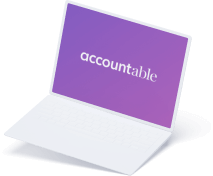
Setting up a cooperative company: what you need to know
Read in 4 minutes
Planning to become self-employed? The first step is to choose the legal form of your business: natural person sole trader or company. Are you going down the company route? Then you have some choices here too. Each company form has its own rights, obligations and starting conditions. In this article, we look at the cooperative company or SC/CV, a very specific company form, which might be the perfect match for your vision and goals. Read on to find out!
What is a cooperative company?
A cooperative company (‘société coopérative’ (SC) / ‘coöperatieve vennootschap’ (CV)) is founded with the aim of meeting the needs of its shareholders and helping them develop their economic and social activities.
In more concrete terms, you can set up a cooperative company to collaborate with other people for a societal purpose. This collaboration has a social or economic character.
The priotrity of a cooperative company is not to maximise profits, but rather to achieve a shared objective. This social aspect is essential for starting an SC/CV.
To create a cooperative company, there needs to be at least three partners. You therefore can’t choose this company form if you don’t (yet) have any partners.
How do the various types of cooperatives differ?
Before 1 May 2023, someone wanting to form a cooperative company had the choice between two legal forms: the unlimited liability cooperative company (‘société coopérative à responsabilité illimitée’ (SCRI) / ‘coöperatieve vennootschap met onbeperkte aansprakelijkheid’ (CVOA)) and the limited liability cooperative company (‘société coopérative à responsabilité limitée’ (SCRL) / ‘vennootschap met beperkte aansprakelijkheid oprichten’ (CVBA)).
In the unlimited liability SCRI/CVOA, the founders were personally and indefinitely liable in the event of financial problems; in the limited liability SCRL/CVBA, the partners were only liable up to the amount they contributed to the company.
These two company forms no longer exist in the new Companies Code. Today, any cooperative will be an SC/CV by default. It’s no longer possible to set up an SCRI/CVOA or an SCRL/CVBA.
What are the advantages of a cooperative company?
Why choose a cooperative company? The name speaks for itself: it’s an official way to cooperate with other self-employed people and create a positive impact on society.
It also has the following advantages:
- No initial capital is required to set up a cooperative company. Each partner must bring ‘something’ to the company: a financial investment, a contribution in kind or even their expertise.
- Another great advantage of this company form is the flexibility it offers. New partners can easily join the SC/CV, and shareholders can leave just as easily. If you want, you can determine the formalities yourself and record them in the company’s statutes.
- Shares are freely transferable between shareholders of the SC/CV. For the transfer of shares to third parties, you can establish rules in the register of shares (‘registre des titres’ or ‘aandeelhoudersregister’).
- The partners of the cooperative company have limited liability, only up to the amount of their personal contribution.
- You can also set up an approved cooperative company, provided certain conditions are met. The Belgian authorities grant this type of company various tax advantages, such as tax exemption on a portion of the dividends that the SC/CV pays to the partners, a reduced tax rate, and social security for workers. Read more about the approval of cooperative companies.
What are the disadvantages of a cooperative company?
Each company form has advantages and disadvantages. Do you want to become self-employed and set up a cooperative company? Here are some disadvantages:
- To form a cooperative company, at least three partners are required. You’ll therefore need to convince at least two other people who are self-employed in a main or secondary occupation.
- The creation and management of an SC/CV involves a lot of formalities. To establish the company you need to draw up a deed that needs to be notarised and create a financial plan. In addition, the cooperative company must keep double-entry accounting.
- No starting capital is required, but you must prove that you have sufficient assets for the first two years of your SC/CV. In other words, your personal assets must be sufficient at the start of the business to be able to support its activities.
- The SC/CV company form is reserved for ‘real’ cooperations that have a social goal. The cooperative aspect is subject to strict control. This type of company is therefore not accessible to everyone. What happens if your cooperative company is deemed to have no real societal added value? Then it risks being legally dissolved.
- As a partner in an SC/CV, you have personal liability in certain situations. What happens if your company goes bankrupt after three years? The courts will examine the company’s financial plan to determine whether you started your business without enough forethought. If the judge finds this to be the case, you’ll have to repay your company’s debts yourself. Therefore, it’s important to take your financial plan seriously. Not only will it be very useful when setting up the company, it may also protect your personal assets in the event of bankruptcy.
How to set up a cooperative company
Do you want to become self-employed while bringing added value to society? Then the cooperative company is an ideal solution for you.
Here’s what you need to do to set up a cooperative company:
- Make sure you have at least three partners to set up your cooperative.
- Create a solid financial plan and submit it to an accountant who can check if your figures are realistic.
- Ask for a bank certificate to prove you have sufficient assets.
- Go to the notary to establish the statutes and the deed of incorporation of your company. The notary will publish the incorporation of your SC/CV in the Belgian Official Gazette and will give you your company number.
- This will allow you to open a professional bank account as a legal entity. All done? Now you’re ready to get to work!
Need a hand?
Do you need to keep double-entry accounting for your cooperative? Then you’ll have to work with an accountant. The Accountable app can also be handy. Our tax and accounting platform allows you to create and send invoices, keep your expenses and income up to date, and view your VAT balance in real time. That means you’ll always know how your cooperative is doing and can focus on what really matters.
Did you find what you were looking for?
Happy to hear!
Stay in the know! Leave your email to get notified about updates and our latest tips for freelancers like you.
We’re sorry to hear that.
Can you specify why this article wasn’t helpful for you?
Thank you for your response. 💜
We value your feedback and will use it to optimise our content.








